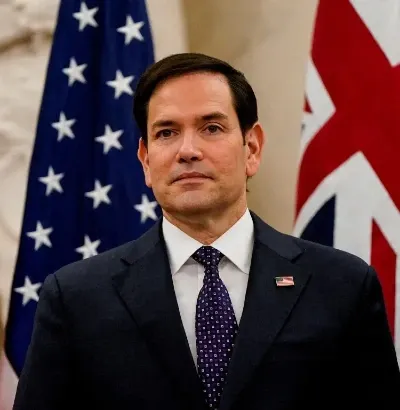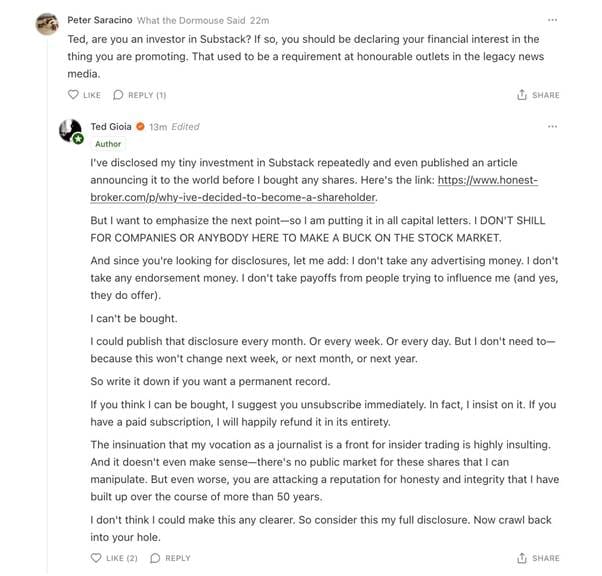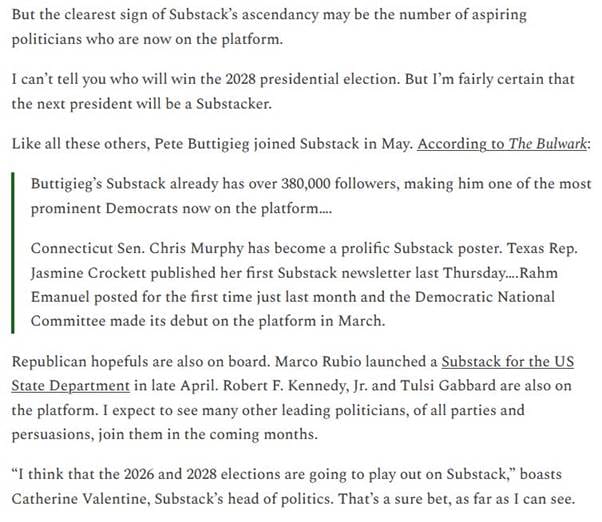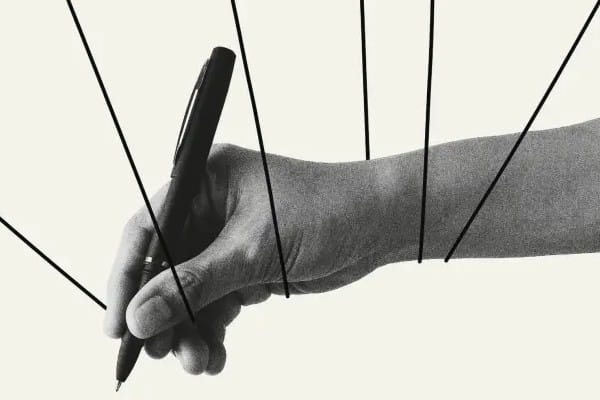🔒 Contra Gioia: Political Neutrality in New Media is a Dangerous Illusion

Part of the genesis of this week’s piece came from getting briefly and unfairly chewed out by a prominent jazz historian, which isn’t something most people can say every day. And while this is probably the most important individual who’s ever had a go at me (Freddie deBoer has popped up a bizarre number of times to randomly be a dick to me about things he imagines I said in articles he didn’t read, but Freddie deBoer has never won a Deems Taylor Award) it was a very short interaction and I don’t want this to serve as a public volley in some tiresome internet beef.
Not entirely, anyway.
My issue has much more to do with what this brush with bonkers drew my attention to—the fact that the project of America’s far right to snatch up media platforms is eagerly abetted by “apolitical” agents.
For example, it kind of passed below the news radar that the US State Department is now broadcasting official state propaganda to the world via Substack. Although functionally this shouldn’t seem that different from government officials releasing their statements on Twitter, intuitively there’s just something off about it. The owners of Substack are much more hands-on and visible to the community than the pre-Musk Twitter was, and Substack is ostensibly an independent writers’ platform. It has an indie community vibe and the site actively promotes individuals.
The Government showing up on Substack, particularly this government, feels kind of like Saddam Hussein rocking up to a local Baghdad library circa 1995 during your book signing and just staring you down the whole time. Suddenly the vibe is a little different.

But the open reaction of the site owners, as well as a bunch of people who treat “Substacker” as a core component of their personality (not just blogger, but Substacker specifically) has been somewhere between amused curiosity and outward celebration. Among the latter is, for some reason, the award winning jazz historian and pianist Ted Gioia.
I don’t have any problem with Ted Gioia, generally. He’s a good writer. A lot of his views align with mine, especially regarding so-called techno-optimism. Oddly, for a world class music historian, he doesn’t write about music much on his Substack publication The Honest Broker.
Another thing he doesn’t talk about much is politics. And that’s perfectly fine. I don’t think everyone with a keyboard and a working internet connection is obliged to rattle on endlessly about what the people in charge are doing. It’s an important topic but’s not the only thing that exists. In fact, we need a lot of people talking about the other stuff to remind us it’s there, or else we would all go mad.
Bizarrely, though, once in a while, between his worldly wisdom and musings about the state of culture, he’ll drop a piece that’s just a blunt, soulless advertisement for Substack. Just a random, wholly out-of-character upbeat promotional piece as though he’s secretly writing copy for the company’s PR newsletter but posting mistakenly under his own name.
It’s so conspicuous when he does this that people will occasionally call him out for it, something which makes Ted—usually a mild and wizened sort—very, very pissed off.

It’s this rarely-invoked ire that I unwittingly stirred when I couldn’t help commenting on his most recent cloying puff piece, “Substack Has Changed in the Last 30 Days.” In this, Gioia tries to shoehorn Substack into the famous maxim misattributed to Gandhi: “First they ignore you, then they laugh at you, then they fight you, then you win.”
By “winning” in this context he’s referring to what he sees as recent signs of the Substack PR Department prophecy coming to pass—that the old media establishment will crumble and every journalist and publication and blogger and artist and content producer of any stripe will slouch defeated toward the gates of Substack, grovelling with apology and begging for redemption.
He chides and mocks the “monopolistic media,” ironically, as he celebrates the building of, well, a media monopoly. But a benevolent one, you see, because Substack is a haven for free speech absolutism, a tenet which is, firstly, not true (visit the Substack subreddit sometime to see just how many writers get banned from the platform for vague or unspecified rules violations—it’s a lot) but which Gioia pretty comically cites as the reason mainstream media hates Substack.
“That’s when powerful people began attacking Substack,” he writes, “They especially hated the fact that this platform lets writers decide what to write, and readers decide what to read.” Much like the simplistic motives the US Government used to explain Islamic animosity toward the American Empire in the wake of 9/11: “They hate us for our freedom.”
The part I just couldn’t let go was when Gioia starts talking about how Substack is winning so hard that prominent politicians are now moving onto the platform—including a decent roll call of President Trump’s administrative cabinet.

I’m sorry, Ted. That’s where I call time out. Saying that Trump’s official State Department setting up shop on Substack is good for Substack is kind of like saying that drawing Sauron’s infernal eye was good for Frodo because someone powerful was finally paying attention to him.
The Trump Administration isn’t joining Substack because they share its values of free expression and diversity of views; they’re burrowing into it like a virus infects a cell.
Free subscribers get access to this article on Friday 13-June




